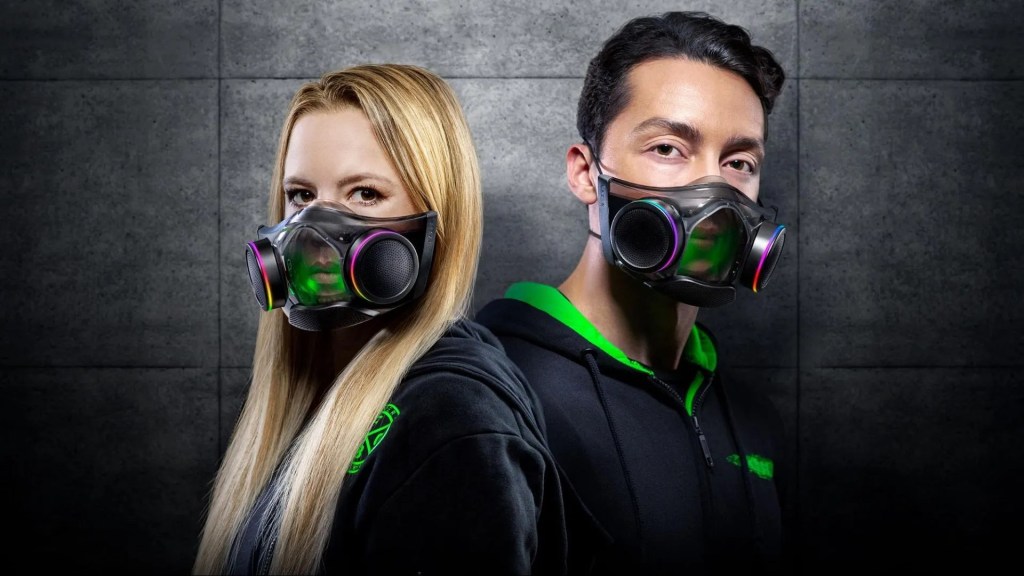Razer hit with $1.1M FTC fine over glowing ‘N95’ mask COVID claims

The Federal Trade Commission hit Razer with a $1.1 million fine Tuesday. The order claims that the gaming accessory maker misled consumers by claiming that its flashy Zephyr mask was certified as N95-grade.
“These businesses falsely claimed, in the midst of a global pandemic, that their face mask was the equivalent of an N95 certified respirator,” FTC Bureau of Consumer Projection Director Samuel Levine noted in a statement. “The FTC will continue to hold accountable businesses that use false and unsubstantiated claims to target consumers who are making decisions about their health and safety.”
Razer has predictably pushed back against the commission’s claims.
“We disagree with the FTC’s allegations and did not admit to any wrongdoing as part of the settlement,” a representative from the company said in a statement to TechCrunch. “It was never our intention to mislead anyone, and we chose to settle this matter to avoid the distraction and disruption of litigation and continue our focus on creating great products for gamers. Razer cares deeply about our community and is always looking to deliver technology in new and relevant ways.”
The company went on to suggest that the complaint was cherrypicked, adding that it went out of its way to refund customers and end sales of the Zephyr.
“The Razer Zephyr was conceived to offer a different and innovative face covering option for the community,” it notes. “The FTC’s claims against Razer concerned limited portions of some of the statements relating to the Zephyr. More than two years ago, Razer proactively notified customers that the Zephyr was not a N95 mask, stopped sales, and refunded customers.”
The FTC is also officially barring sales of the mask and “making COVID-related health misrepresentations or unsubstantiated health claims about protective health equipment.” It goes a step further, “prohibit[ing] the defendants from representing the health benefits, performance, efficacy, safety, or side effects of protective goods and services (as defined in the proposed order), unless they have competent and reliable scientific evidence to support the claims made.”
The filing suggests that Razer intentionally deceived consumers into believing that the $100 mask would protect against COVID. Certainly the virus was very much top of mind when the product first dropped in October 2021.
The order is currently awaiting approval and signature from a District Court judge.